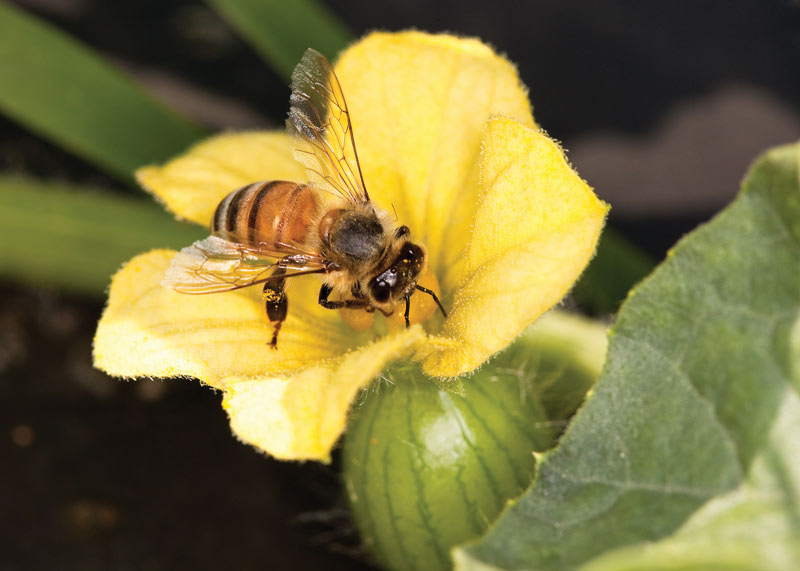
Photo by Stephen Ausmus/USDA-ARS
Concerns about the toxicity of neonicotinoids to bees have resulted in bans on some crop pesticides in the European Union, and have heightened worldwide awareness in regard to bee safety and pesticides.
The neonicotinoids imidacloprid and thiamethoxam, which are N-nitroguanidine compounds, are known to be highly toxic to bees, but honey bees are far less sensitive to other neonicotinoids, including N-cyanoamidine compounds such as thiacloprid.
Previous work has indicated that the N-cyanoamidine compounds are not harmful because they are rapidly metabolized by the bees. Researchers from Rothamsted Research and the University of Exeter — both in the United Kingdom — and Bayer AG in Germany have discovered the specific genes and enzymes that are involved in the rapid metabolism of some neonicotinoids.
The two most economically important bee species, honey bees and bumble bees, show similar responses to these neonicotinoids. This information about the biochemical defense systems of bees will allow researchers to develop new pesticides that will not be harmful to bee health.
— C. Manjon, Bayer AG, Germany; B.J. Troczka, Rothamsted Research, U.K.; M. Zaworra, Bayer AG and University of Bonn, Germany; C. Bass, University of Exeter, U.K.; R. Nauen, Bayer AG, Germany; and others.
This research was published in Current Biology.
Teresa Carson is GCM’s science editor.